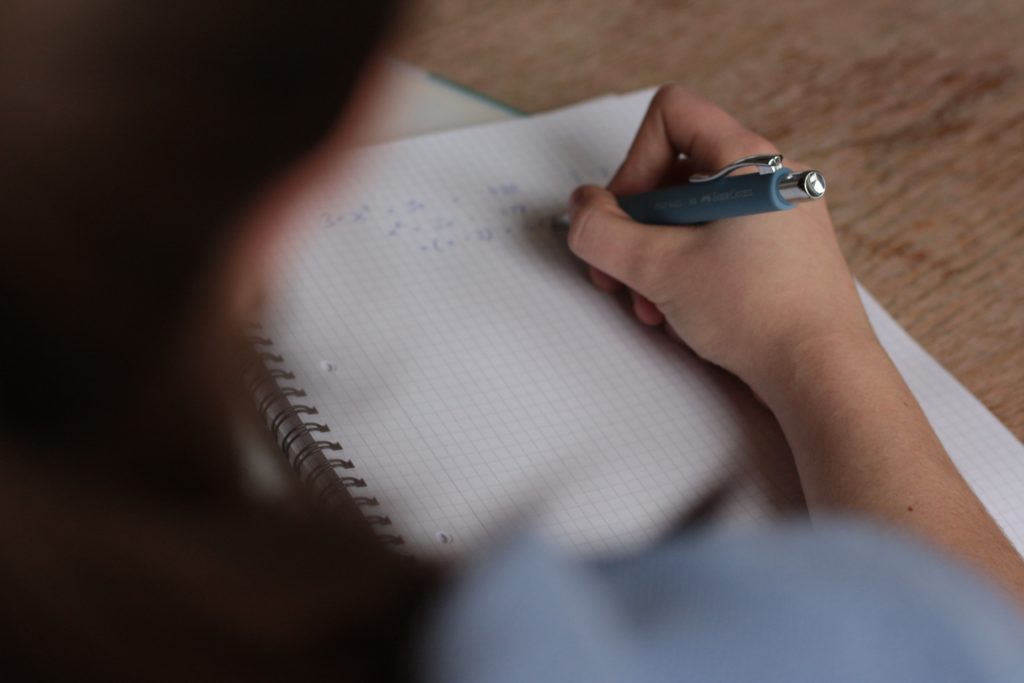The importance of learning from your notes for the NEET PG Exam

It has been said rightly by the famed American actor and wrestler Dwayne Johnson that “Success isn’t always about greatness. It’s about consistency. Consistent hard work leads to success. Greatness will come.” This also holds for NEET-PG preparation, which requires the aspirant to be hardworking, consistent, and confident.
For students pursuing the medical field, NEET-PG is one of the qualifying exams that help secure admission into MD (Doctor of Medicine), MS (Master of Surgery), and other post-graduate courses. NEET is conducted by the National Board of Examinations (NBE) every year. NEET-PG is held for those students who have a Bachelor of Medicine, Bachelor of Surgery (MBBS) degree. Generally, students start their NEET-PG preparation from an early stage.
The NEET-PG performance is well related to how a student prepares for the final exam. As the syllabus is quite vast, detailed scheduling is essential. Apart from this, it is also crucial to study regularly and focus on your weak areas. Both offline and online resources might be helpful in the preparation. Memory tactics like mnemonics can be used to memorize complex terms. Specific points can be considered while preparing for the exam in a better and organized way. Some of these essential points are:
1. Maintain a schedule: Preparing a timetable helps give equal time to all the topics and save time for revision.
2. Use memory aids: Flashcards and mnemonics are standard tools to ease learning in the medical field.
3. Be consistent: Creating a timetable is not enough. It is crucial to follow that timetable regularly to avoid piling up at work.
4. Solve mock tests: Revision can be done by solving previous year papers or mock trials.
5. Prepare notes: This is the most crucial aspect of preparing for NEET-PG. Notes can help you retain the topics in your memory for a longer time and can be used for end-moment revisions too.
All these tips are handy during preparation for NEET-PG. However, learning from notes holds extreme importance here. This article will capture a detailed review of the significance of note-making and how it can be done quickly.
Why is learning from self-made notes important for NEET-PG?
1. Helps retain the topics better in your memory when the student creates their notes for NEET-PG. As one makes notes, they get more engaged in the course material. Making notes on your own can help promote critical thinking and subsequent questioning. This may not be true in case the notes are copied. Notes are created to assist in learning when needed. But in case the notes are self-written, the process of learning starts right away when you begin creating notes.
2. Writing can help clear doubts
While initial reading, topics may not be evident to you. Some concepts are easier to understand, whereas the others involve complex mechanisms and terms. As soon as you start writing the notes after completing the chapter/topic, your doubts seem to become more evident. This makes you understand things on your own and helps boost confidence. The main advantage of self-made notes is that you can write all the doubt-explanations in a manner that seems comfortable while learning.
3. Helps in last-minute revision
The most important use of self-written notes is for last-moment modifications. The NEET-PG aspirant should start early with the syllabus rather than wait for the last months. When you create notes right from the beginning, it helps you reduce workload and save time for other activities and revision. Notes are intended to be made in a time-saving way. Notes must be written in short and crisp sentences that are easy for the brain to process even in stressful situations. Hence, self-made notes can help grasp important points during final revisions.
4. Strengthens the concepts
It is pretty well-known that the NEET-PG syllabus contains essential topics and subtopics. It is crucial to divide proper time for all these topics/subtopics. Sometimes, the sight of many topics at a time can create tense situations. Thus, writing the critical concepts regularly can prevent work overload. As learning tools, writing exercises are critical. They help aspirants think analytically and logically about course material while encouraging them to grasp, organize, and
integrate prior knowledge with new concepts. Later, when you see that particular topic, you will be able to recall the conceptual details related to it more efficiently.
5. Builds confidence
Note-making on your own can help you group the points as per your criteria. It may further assist in making a strategy to decide the time to be given to each topic. Also, this automatically develops confidence in the student. It is easier to recall concepts and facts quickly when notes are made side by side. Moreover, you tend to remember the information of each topic when you write them on your own. You can easily search for the subject rather than searching from the book. This saves time. You get to know about how much you have learned and understood, and hence you become confident.
Tips for creating practical notes
Know the detailed syllabus
After completing graduate studies, a lot of options are open for the students. Some of these options include jobs, internships, start-ups, or further studies. After completing their MBBS degree, a large percentage of graduate medical students opt to appear for NEET-PG. As mentioned earlier, this entrance exam is one of the most prestigious and qualifying exams. Based on this entrance test, one secures admission into different colleges or universities. When one chooses to appear for NEET-PG, the first and foremost step is to study the syllabus for the exam. The syllabus of NEET-PG varies entirely from that of NEET-UG. For example, NEET-UG contains Physics, Biology, and Chemistry, where Biology is divided into Zoology and Botany.
On the other hand, the syllabus for NEET-PG is a complex combination of branches of biology only. Various crucial topics like anatomy, pediatrics, joints, bones, etc., are covered in NEET-PG. Be an early bird and note down the syllabus at a place where it is visible to you regularly. Before you start making any notes, sufficient knowledge of the syllabus is essential. It can help identify the vital topics, and hence more focus can be made on those topics/subtopics while making notes.
Understand the marks allotment
When you start with the preparation, understanding the marks allotment is another important initial task. Different topics have different weightage in the final exam, which vary from year to year. However, by looking at the previous year’s question papers, it is possible to deduce the approximate marks distribution. Now, why is this an essential aspect of note-making? Because it helps you to get an idea of how detailed your notes must be. For topics having fewer
concepts and less mark distribution, detailed notes are not much needed. For topics frequently asked in the paper, you may need to make detailed notes with short headings that are easy to learn.
Understand your learning pattern
The way of learning can be different for each individual. Before starting with anything, it is vital to identify your learning style. Some students prefer the sequence of reading, learning, and recalling. While others prefer to read more than once, memorize and write. There can be many other ways to learn the syllabus for NEET-PG. However, the common thing between all methods is notes. Note-making forms an integral part of the NEET-PG preparation. As the syllabus is a combination of hundreds of subsections, individuals need to have everything written in their
own words. Your learning pattern can also decide your way of making notes. Some students make notes after learning each chapter, while others prefer to make revision notes after completing the syllabus. Any of the methods may be suitable according to one’s learning pattern.
Jot down points while reading
Jotting down points and making notes possess a fine line of difference between them. Jotting down points refers to writing down important keywords or key points while reading or learning the chapter. This does not need a thorough understanding of the entire topic at once and can be done parallel with reading. On the other hand, making notes is the process of writing what you have understood either in your terms entirely or with the help of reference sources. This is usually done after reading and learning the concepts once or twice. In this case, the points you jotted down earlier can also be used to create short sentences for your notes.
Maintain a revision notebook
Apart from your regular notes, it is advisable to prepare revision notes that contain only the key
points. These key points include those topics/concepts which you tend to forget easily or are significant from the exam point of view. By studying the previous year’s NEET-PG question papers, you may estimate the essential topics that need constant revision. Graphical tools like tables and flowcharts also ease the process of revising when time is less. Processes or biological/chemical mechanisms are better retained in our memory when studied in the form of
flowcharts. Instead of pages, use a notebook to avoid any loss of pages. For last-minute revision questions and previous years’ NEET-PG papers, you can refer to the books by DBMCI. Some of the suggested books for revision are:
· To The Point previous year recall questions by Dr. Mukesh Bhatia and Dr. Rajat Jain
· Review of NEET-PG by DR. Mukesh Bhatia, Dr. Rajat Jain and Dr. Nachiket Bhatia
. Last Minute Revision Points by Dr. Mukesh Bhatia and Dr. Rajat Jain
Note down your mistakes
The level of difficulty for various topics can be different. Also, the problem of concepts can be perceived differently by every student. There are always some concepts where we lack understanding. Regular revision from notes can help understand them better. Also, sometimes we may make mistakes in memorizing terminologies, definitions, reactions, and mechanisms. The names of substrates, enzymes, diseases, and disorders may also be confusing at times. Although memory tactics can assist in learning these better, a few topics can still be problematic. Noting down our common mistakes along with the notes is an efficient way not to repeat them. Hence, this is an essential tip for making better notes and improving your NEET-PG rank.
Note down your doubts
Our mind has numerous things to remember. While we have many concepts to memorize, there is a possibility that doubts may surely arise. Initially, doubts may arise, while reading or understanding, remembering or making notes, and most importantly, during the final revisions. Some doubts may not get clarified there and then due to lack of time, guidance or resources. Our minds may tend to forget these if not written. Hence, noting down your doubts can be highly helpful in promoting better understanding.
A highly effective way of clearing your doubts is by visiting the e-Gurukul app. The app contains
numerous features to help clarify concepts, create better notes, and gather information from experts and toppers. For more information, please check out the following link https://www.egurukulapp.com/
Use different colors for writing
This tip can be handy for better learning. Many students use colored pens or highlighters either for making notes or for underlining in their textbooks. Color-coding your notes can help you organize information more effectively and study more efficiently. Most importantly, color coding can be helpful when you have a short period to finish your learning portion. The beauty of color-coding lies in the fact that you can create your color codes. The significance you give to each hue serves as a form of mental shorthand, providing context to the material you mark and helping you process it more meaningfully and efficiently. However, the colors used must be limited. Every color should serve a particular purpose that can be understood and learned quickly.
Write in a concise manner
Usually, notes are written for personal use. Using simple language to write notes can help maintain a level of clarity. Simple language, here, means that concepts that do not require a detailed approach can be written in a very concise manner. Textbooks and reference books can surely provide elaborate ideas. But in certain situations, we do not have enough time to read everything from the books. But, notes are meant to be used for revision and quick learning. Clear and concise sentences in notes promote better understanding and improve their retention in memory.
Write only what is needed
As mentioned earlier, notes are meant to be concise. Try to write only the information that is sufficient to help you recall a particular topic. Notes should be written after reading and learning the chapters/issues once or twice. Copying notes directly from the books should be avoided. However, help from textbooks and reference books can indeed be taken. Not only books, but you can also use various e-resources to grasp the topic. Once you are done with understanding the concepts, then it is time to make your notes. Using this sequence, you will clear the clutter from your sentences and create sharp and crisp points.
Conclusion
By now, it may have become apparent that making your notes can help improve your NEET PG rank significantly. Because self-written notes can be handy during last-minute revision, most NEET PG aspirants prefer to study from notes rather than lengthy textbooks. Notes consist of formulas, keywords, shortcuts, and tricks. It is essential to check previous year’s papers, mock tests and attempt quizzes to get familiar with the questions asked in the exam. With the right preparation strategy, NEET-PG is not hard to crack. You can follow the tips mentioned above to gain a good rank and admission to the desired college or university. For better preparation and revision tips, e-Gurukul is the right place to be. E-Gurukul is an initiative by
Dr. Bhatia Medical Coaching Institute (DBMCI) and is one of the best online platforms. eGurukul can be used to clear doubts, listen to lectures, identify your weak points and assess what you have learned to date. You can learn from the best medical experts who have tutored numerous NEET-PG toppers. For more information, visit https://www.egurukulapp.com/


